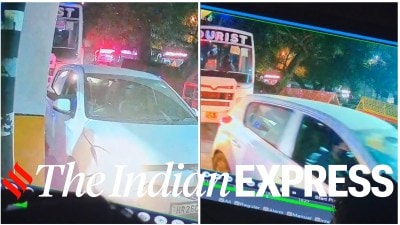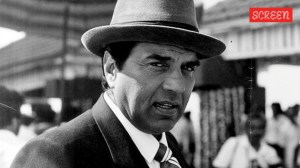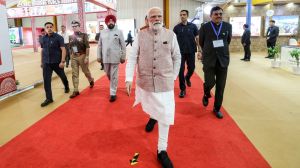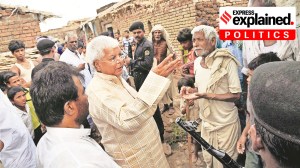Click here to follow Screen Digital on YouTube and stay updated with the latest from the world of cinema.
25 years of Indian Cinema | Small towns returned on screen in 2005 with Bunty Aur Babli; Black changed the conversation
The ‘small town’ made a comeback. Swish rom coms set in foreign parts came out from the same studio just to keep the balance: choose your pick, Abhishek and Rani, or Saif and Preity? Loud comedies ruled the roost: 2005 had all this and Black.
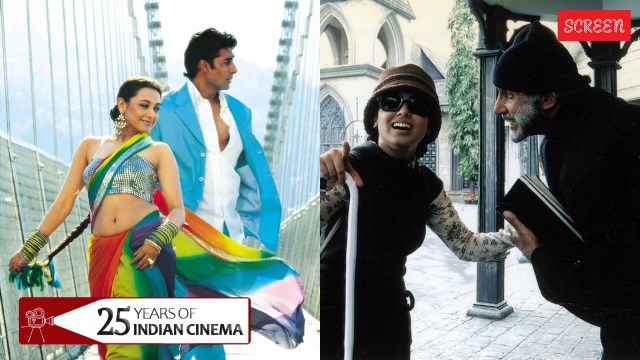 A quick snapshot of Bollywood movies in 2005.
A quick snapshot of Bollywood movies in 2005.The ‘small town’ made a comeback. Swish rom coms set in foreign parts came out from the same studio just to keep the balance: choose your pick, Abhishek and Rani, or Saif and Preity? Loud comedies ruled the roost: 2005 had all this and more. It also had Black, which brought the conversation around disability into the mainstream.
Bunty aur Babli gave the small town a YRF-led designer upgrade.
You wonder if real-life Kanpur boy Shaad Ali would recognise his own city in his movie, which is about these two small-town youngsters jo jhola utha ke chale to big towns, heading towards bigger things and living their dreams.
It is also the film that got back the ‘small town’ in Bollywood’s imagination, replacing the grunge and grime of the real thing with cutesiness and underlined quirk. The colorful outfits that Abhishek and Rani’s Bunty and Babli sport, could only have sprung up in Yashraj’s design department, which were of course adopted speedily by the tailors-and-their-patrons of the self-same UP small towns that the film wanders through, completing the circle– stars wear clothes– their characters hit the spot– cheap knock-offs flood the market– the wearers also become stars.
25 years of Indian Cinema | The year of Swades, Maqbool and Main Hoon Na
This is one of Abhishek’s better films, and Rani, when she is not wailing, is being perky and smart. But the one who steals every scene is Bachchan Sr, who comes on in a near walk-on part, and runs away with the film.
Bunty aur Babli is also adorned with the item number to end all item numbers, a song that is still top of the pops as far as dance floors are concerned. Aishwarya Rai (she still wasn’t Bachchan then) swings her waist, and both father and son, follow suit. Kajrare kajrare, mere kaare kaare naina, goes Gulzar’s ditty: I dare you not to get up and swing with it.
Loud comedies like No Entry and Garam Masala marked attendance. So did the dud period film Mangal Pandey, a rare early misfire from Aamir Khan.
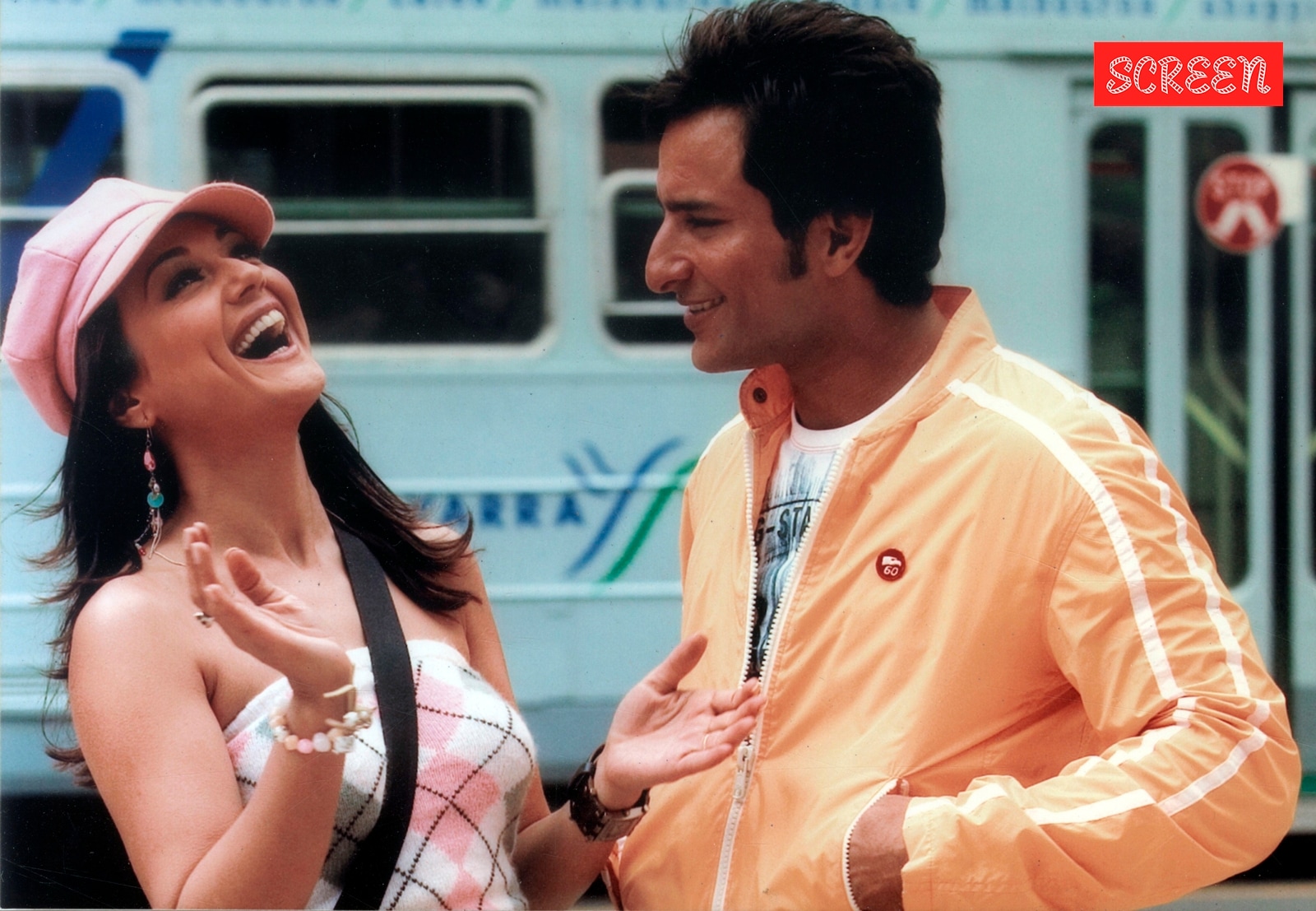 Preity Zinta and Saif Ali Khan in Salaam Namaste. (Express archive photo)
Preity Zinta and Saif Ali Khan in Salaam Namaste. (Express archive photo)
One of my guilty pleasures that year was another YRF production, Sidhharth Anand’s frothy rom-com Salaam Namaste, which gave us one of the first live-in couples in Bollywood, in which a very pregnant Preity Zinta gives in to her cravings for Ben and Jerry ice cream in the dead of the Melbourne night, with reluctant to-be-dad Saif Ali Khan following suit.
But the film that marked the year was Sanjay Leela Bhansali’s Black, featuring Rani Mukerji as a girl with a profound disability and her relationship with her teacher, played by Amitabh Bachchan, whose character is struggling with advanced Alzheimer’s.
Several parts of the film felt groaningly maximal– Shimla mansions as more art deco constructions done up in European accents– but then that’s trademark SLB. A couple of sequences in which I’d felt uncomfortable with back then are still as problematic– a teacher dragging a screaming ‘problem child’ by the arm is one.
But what Black did was that it placed characters with profound disability front and centre, as drivers of the narrative, not characters to be pitied or sidelined and forgotten. And the impact of that choice was huge: conversations around the importance of acceptance and inclusion were kickstarted.
25 Years of Indian Cinema | 2003 was the year Irrfan Khan broke out with Haasil amid Baghban, Munna Bhai MBBS, Koi Mil Gaya
Just for that, you want to applaud Applause Films which produced the film, giving Rani one of her most challenging roles, and which she managed to pull off with conviction, barring the odd exaggerated gesture or look.
The year also marked Imtiaz Ali’s underrated debut Socha Na Tha, featuring another debutant, Abhay Deol, whose striking pairing with the ebullient Ayesha Takia, heralded a fresh sensibility in the Bollywood rom-com.




- 01
- 02
- 03
- 04
- 05



